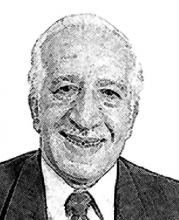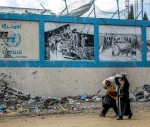You are here
New Turkish psyche
Jul 23,2016 - Last updated at Jul 23,2016
The United States of Turkey, is the title of a chapter in a book that promotes President Recep Tayyip Erdogan’s vision of Turkey in 2050, and is part of the political literature distributed by the Justice and Development Party in Ankara.
The book names, as members, many European countries as well as many Arab countries that used to be part of the Ottoman Empire in the past.
It is such a vision that explains the support given to many movements in Arab countries like Hamas and the Muslim Brotherhood, since they are seen as the cornerstones of a future Turkey in 2050.
Many press reports expected the coup attempt against Erdogan three months ago, in April, when the highest judicial authority, the supreme court of appeals, rejected the verdict against 531 army generals, lawmakers, journalists, and judges, who were accused of plotting to overthrow the government.
The 8,000-page indictment by the lower court was annulled by the supreme court as non-legal, pending a retrial.
The main charge against the defendants was membership in an alleged secret society called Ergenekon, which is an ethno-centric political movement, whose main ideology of secularism and loyalty to the country made them consider themselves the elitist custodians of Ataturk’s heritage of the chosen people for the chosen land.
Since 1923, the Turkish army had never witnessed a chief of staff who was not a member of that network of “custodians”.
The same applies to security agencies, top executive posts, diplomats, supreme court judges, and industrial and financial tycoons.
Ergenekon represents more of an alleged deep state in Turkey. Its ideas of ultra nationalism and secularism are ingrained in the minds of millions of the new generations of military cadets, secondary school students and young intellectuals.
The new Turkish psyche has been imbued with an agile sense of superiority to other races, since, according to the Ergenekon legend, the four centuries of seclusion in that Euro Asian valley, in harsh weather conditions, have minted a new personality of a superior being.
But would Erdogan survive the wrath of his wounded army, or tolerate the fury of his polarised people, and live to see his 2050 vision come true is hard to imagine.
The army, with its 700,000 fighters, will not allow the emergence of a civilian Kemal Ataturk in the 21st century. The shattering of the image of soldiers, as they were seen kneeling down on the Bosphorus Bridge after the coup was thwarted, is humiliating to all nationalists.
Erdogan might resort to his Justice and Development Party to impose a one-party regime, but such a stratagem could not save Nicolae Ceausescu in Romania, Jaafer Numeiri in Sudan or Saddam Hussein in Iraq.













